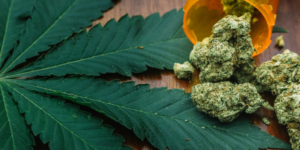Last updated : April 7, 2025
The USA Mobile Drug Testing of Northeast Ohio team thinks it’s important to share the latest Department of Transportation (DOT) drug testing news, so that’s what we’re here to do! The DOT’s Federal Transit Administration (FTA) has recently released industry trends and policies which we will share with you in this post.

MARIJUANA & CBD
According to the DOT’s Federal Transit Administration (FTA) most recent newsletter shared here, the FTA outlined two important cannabis issues: “the first reminds employees that they’re barred from using marijuana—regardless of state legalization—and gives an update on DOT drug testing trends. The second warns that while hemp-derived CBD may be federally legal, such products remain unregulated and could contain THC levels that are detectable in a drug test.”
Information around how marijuana and CBD relate to drug testing has become a prevalent issue as states and local governments continue to pass legislation that prohibits employers from testing for these drugs. However, these state and local laws do not trump DOT-regulated drug and alcohol testing programs, which is important for business owners with federally regulated truck drivers, train operators, and safety-sensitive workers to understand.
Therefore, regardless of state and local cannabis policies, DOT employees are not allowed to use marijuana and will continue to be tested for THC. It is also important for business owners to know that CBD products can result in positive THC drug test results. Please feel free to continue reading about this topic here.


SECOND CHANCE DRUG TESTS
Another trend found within the DOT’s Federal Transit Administration (FTA) most recent newsletter shared here is that DOT-regulated drivers have been taking more second-chance drug tests, which signals a shift away from zero-tolerance policies drug and alcohol testing policies.
“One of the potentially telling statistics is the increase in both the number of Return-to-Duty (RTD) tests conducted and the number of FTA-covered employers performing this type of test. This data indicates a trend toward a ‘second-chance’ policy versus a ‘zero tolerance’/termination policy following a DOT drug violation.”
While the data doesn’t state whether these RTD drug tests are caused by marijuana or not, federal cannabis drug testing policies are criticized due to the length marijuana can stay in one’s system, as well as drug testing policies deterring potential job candidates.
Under the current DOT drug testing policy, urine testing is mandated, but there is a potential policy change that will allow saliva-based tests as an alternative DOT testing option. This policy would help in instances if an employee takes a CBD product with an unknown amount of THC, since THC is generally only detectable in a saliva sample anywhere from 1 to 24 hours after use, compared to weeks for urine drug tests. The new proposed DOT policy says “there would be a 4 nanogram per milliliter screening test cutoff for THC, which would detect use of marijuana while eliminating possibilities of positive tests resulting from passive exposure.”

DOT DRUG & ALCOHOL TESTING
With all that is happening within the DOT, the USA Mobile Drug Testing team thought it was important to keep you informed of these updates! If you would like to set up a Department of Transportation Drug Testing policy in your workplace, please contact us here.
